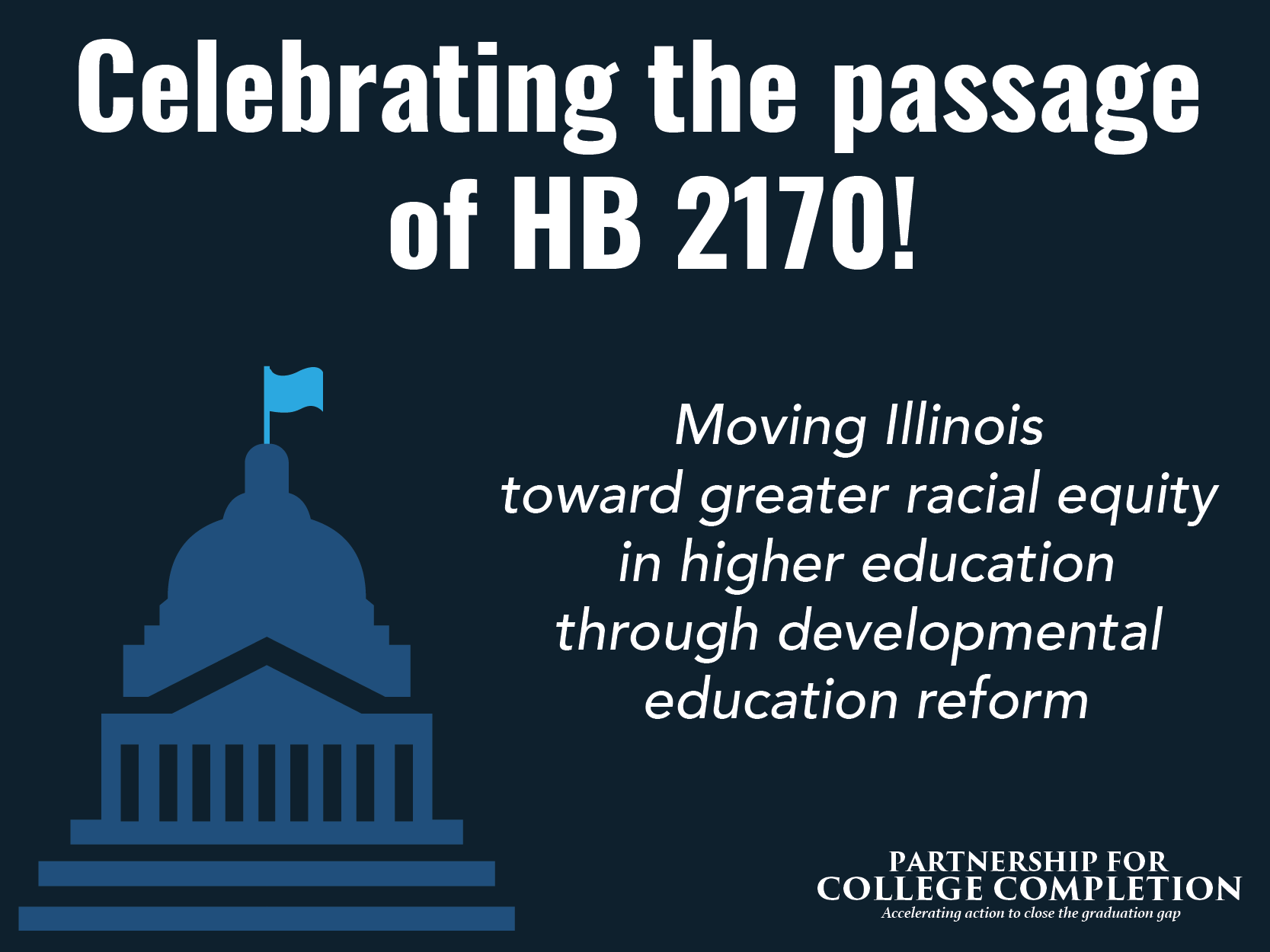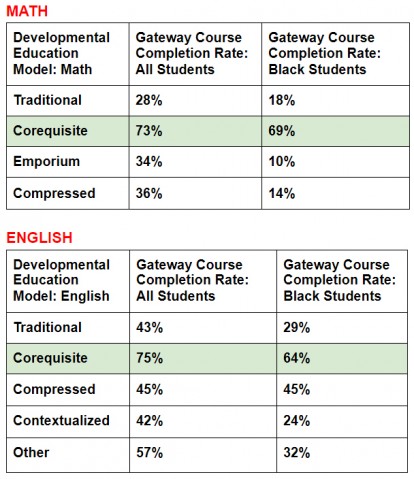
Partnership for College Completion | January 12, 2021
Systemic racism underlies both the disproportionate impact of COVID-19 on communities of color and our history of police violence against Black people in the United States. These dual crises collided last year, creating a wave of civil unrest across the country and spurring the Illinois Legislative Black Caucus (ILBC) to develop a legislative agenda aimed at dismantling the vicious cycle of racism in Illinois. Over the course of several months, the ILBC heard from advocates and stakeholders from across the state on policies and practices hindering racial equity. They categorized these priorities into four pillars:
- Criminal justice, violence reduction, and police accountability
- Economic access, equity and opportunity
- Health care and human services
- Education and workforce development.
Colleges are twice as likely to place Black students in developmental education courses as they are to place White students. Once placed in a developmental course, Black students are less likely to enroll in and complete a gateway course in mathematics and English and are less likely to complete a degree than their White peers. As it stands, nearly 71 out of every 100 Black students in an Illinois community college are placed into a developmental education course and, most appallingly, only 6 of those students will go on to graduate.
The problem is twofold: (1) inaccurate placement measures, like high stakes placement exams and standardized tests, over-place students into developmental education; and (2) the traditional (and most common) model of developmental education includes long course sequences, which cost students time and money, rarely count as college credit, and seldom lead to a degree.
The Developmental Education Reform Act addresses both of these issues. First, it requires community colleges to look beyond standardized test scores, which, compared with other measures like high school GPA, track more closely with a student’s income than their course preparedness. The legislation requires a multiple measures framework for placement into college-level coursework, including GPA. Evidence shows that using high school GPA results in fewer students misplaced into developmental coursework, and can help make placement more equitable. The key to this approach is allowing students to demonstrate proficiency with any one measure in order to become eligible for college-level coursework—eliminating the risk of double jeopardy and giving students multiple paths to demonstrate readiness for college-level coursework.
The second part of the Act addresses how students are served once they are placed into a developmental course. Currently, at least 45 community colleges still implement the traditional model of developmental education at some level, despite evidence of its ineffectiveness. In the latest community college cohort, just 18% of Black students in the traditional math model completed their gateway course with a “C” or better in 3 years, and just 29% completed their English gateway course. Alternately, co-requisite remediation, an evidence-based model that places students directly into college-level coursework with concurrent supports, reported 69% of Black students completing their math gateway course and 64% completing their English gateway course with a “C” or better in 3 years.
While institutions are implementing other approaches to developmental education like co-requisite remediation, 77% of math students and 67% of English students who are placed in developmental education are still placed in a traditional model. The Developmental Education Reform Act requires institutions to develop plans for implementing and scaling evidence-based developmental education models that maximize students’ likelihood of completing gateway courses in mathematics and English within two academic semesters. There is no question that more effective approaches to developmental education exist, and this bill will help spur institutional action to implement and scale evidence-based approaches that improve equity in college-level course access and completion.
In concert with ongoing agency and institutional efforts to improve developmental education outcomes[1], HB2170 will help scale down the disproportionate enrollment of Black students in traditional developmental education, ensuring that more students who can immediately succeed in college-level coursework are placed in credit-bearing courses and that students who need additional support are served by evidence-based models of developmental education.
Successful implementation and sustainability will require institution-wide stakeholder engagement, dedicated state and institutional resources, and a comprehensive review of current developmental education practices and policies and related student supports. We applaud the ILBC for championing HB2170, a crucial step to more equitable course placement and gateway course completion, which will support more Black students on their path toward college degrees.
[1] See: SJR 41 report, ICCCP course placement recommendations, ICCB developmental education grant, ILEA institutional Equity Plans, PWR Act’s transitional math implementation


